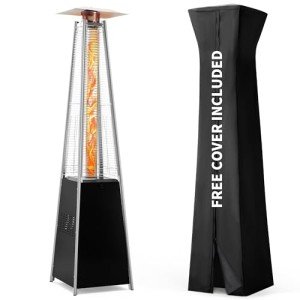Multi Fuel Stoves for Sale: A Comprehensive Guide
Multi fuel stoves have gained increasing popularity throughout the years due to their flexibility, efficiency, and visual appeal. These stoves can burn various types of fuel, such as wood, coal, and biomass, allowing property owners to select the most cost-effective and environmentally-friendly alternative based on their needs. This article intends to provide an extensive introduction of multi fuel stoves, their advantages, considerations for getting, various types offered, and responses to frequently asked questions.
The Benefits of Multi Fuel Stoves
Multi fuel stoves provide a variety of advantages for house owners aiming to optimize their heating options. A few of the key benefits include:
- Versatility: The ability to utilize numerous fuels allows property owners to adapt to altering circumstances, such as varying fuel prices or availability.
- Cost-effectiveness: Depending on local fuel costs, users might find cost savings by burning less expensive fuels like wood or coal.
- Environmental Impact: Many multi fuel stoves release lower emissions than traditional heating systems, particularly when using sustainably sourced biomass.
- Visual Appeal: Multi fuel stoves include a touch of heat and appeal to any home, producing a cozy atmosphere.
- Efficiency: Modern multi fuel stoves are developed to make the most of combustion and heat output, supplying an efficient heating service for homes.
Kinds Of Multi Fuel Stoves
When thinking about a multi fuel range, it's vital to understand the various types offered on the marketplace. Below are some common classifications:
| Type | Description | Normal Fuel Sources |
|---|---|---|
| Wood Burning Stoves | Particularly created for burning wood logs and pellets. | Logs, wood pellets |
| Coal Stoves | Stoves enhanced for burning coal, providing high heat output. | Anthracite, bituminous coal |
| Pellet Stoves | Usage compressed pellets made from wood or biomass, efficient burning. | Wood pellets, biomass pellets |
| Combination Stoves | Capable of burning both wood and coal, using flexibility. | Wood, coal |
| Biofuel Stoves | Created to burn liquid biofuels, promoting sustainability. | Bioethanol, biodiesel |
Factors to consider for Purchasing a Multi Fuel Stove
Before investing in a multi fuel stove, there are numerous factors to consider to ensure the selected design meets heating needs and choices. Here are some important factors to consider:
- Size and Capacity: Evaluate the heating requirements for the area and pick a stove with the suitable output. This is generally determined in kilowatts (kW).
- Efficiency Ratings: Look for stoves with high efficiency rankings, which represents much better fuel utilization and lowered emissions.
- Material and Build Quality: Opt for stoves made from long lasting materials such as cast iron or state-of-the-art steel that can endure high temperatures.
- Price: The budget plays a considerable role in decision-making. Think about both the upfront expense and ongoing fuel expenses.
- Setup: Some designs may need professional setup or particular flue systems. Examine Fireplaces Deals and codes for compliance.
- Aesthetics: Consider the design and finish to ensure it matches your home decoration.
Frequently Asked Questions About Multi Fuel Stoves
1. Can I utilize any type of fuel in a multi fuel range?
Multi fuel stoves are created to use specific kinds of fuels. Always describe the manufacturer's standards to understand which fuels work.
2. How do I preserve my multi fuel range?
Routine upkeep consists of cleaning the flue pipeline, looking for obstructions, and examining seals and gaskets. Following the maker's maintenance schedule is vital for safety and efficiency.
3. Are multi fuel stoves safe to use?
Yes, when appropriately set up and kept, multi fuel stoves can be a safe heating alternative. It is necessary to follow safety guidelines and standards for setup.
4. Do I need a chimney for a multi fuel range?
Yes, the majority of multi fuel stoves require a chimney or flue system to vent smoke and gases outside the home. Ensure that the system is installed according to local building regulations.
5. What is the typical lifespan of a multi fuel stove?
With proper upkeep, a durable multi fuel stove can last anywhere from 15 to 25 years, depending on use and care.
Multi fuel stoves provide a flexible and efficient heating option for homeowners, enabling them to pick their favored fuel type based upon cost and accessibility. By thinking about the different types of stoves, their advantages, and aspects to think about when acquiring, individuals can make informed decisions that will enhance their home's convenience. With a wide range of choices readily available, possible buyers ought to do extensive research, considering the stove's efficiency, fuel compatibility, and general design to find the best suitable for their requirements.
In conclusion, while multi fuel stoves can look like a big financial investment, their adaptability and efficiency make them a worthwhile addition to any home. Whether it's for extra heating or as the primary source of heat, a multi fuel stove offers a useful service for the modern homeowner seeking to balance convenience with sustainability.

